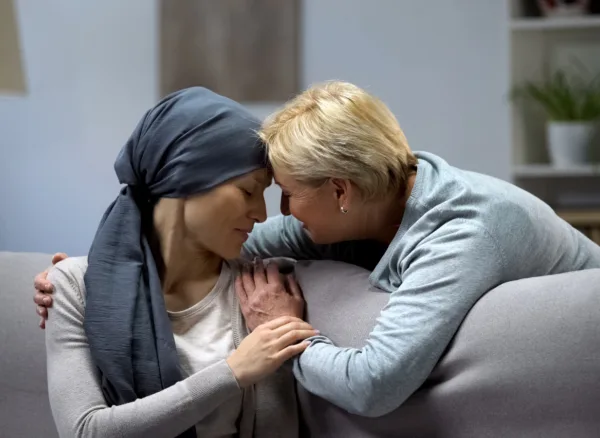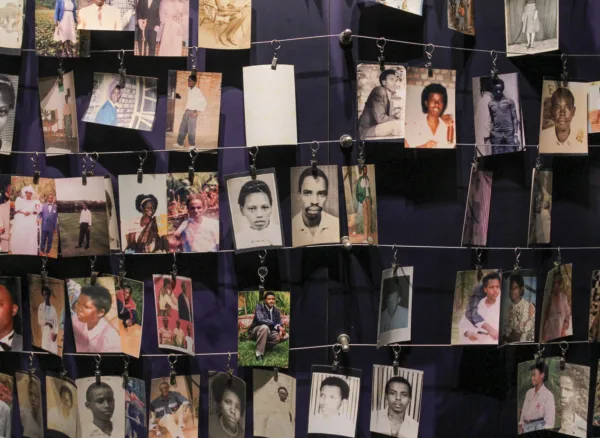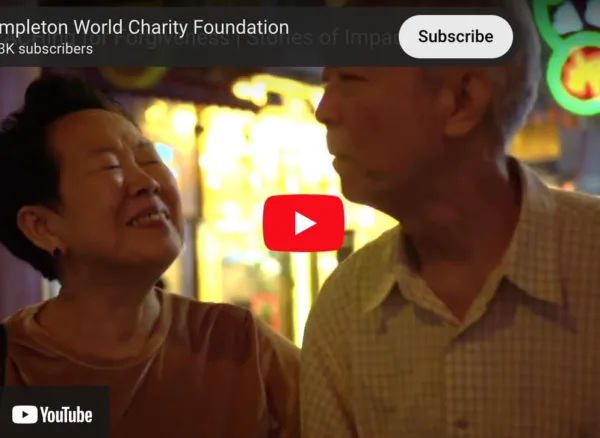Menu

What is the distinction between the decision to forgive and experiencing emotional forgiveness?
Watch the video from Discover Forgiveness below.
Award-winning producer and founder of Project Forgive, Dr. Shawne Duperon, social psychologist and author of God Is a Black Woman, Dr. Christena Cleveland, and entrepreneur, speaker, and author of The Song of Significance, Seth Godin talk about releasing resentment.
This conversation touches upon the importance of critical thinking and the distinction between making the decision to forgive and the actual experience of forgiving. They also discuss communal support and actionable tools in achieving forgiveness and emotional freedom.

“So many of us, particularly people of color who have lived with a lot of embodied trauma, are not easily able to access our emotions — but we might have a story that guides the way we interpret perceptions.”
Critical Thinking and Forgiveness
Critical thinking, as Duperon defines for the purposes of this conversation as "a process of actively analyzing, synthesizing, and/or evaluating information," is at the heart of forgiveness. "You don't have to agree or disagree," she explains, "you can even be neutral." This information is "gathered from or generated by your observations, your experiences, your reflections, your reasonings and even your communication," she says. "The bottom line for me with critical thinking is that it's the underlying guide to your beliefs and your actions."
Surrender, Release and Forgiveness
Cleveland makes the distinction between the decision to forgive and experiencing emotional forgiveness. According to Cleveland, who integrates social science research, dynamic storytelling, and somatic practices into her work, the decision to forgive "is an intention, and [experiencing emotional forgiveness] is an actual transformative alchemical process." The "discipline" involved in sticking with the decision to forgive "matters, but we also need something beyond our personal intention," she says. "That second piece — the actual experience of forgiveness, or emotional forgiveness — is a surrender." This surrender, she notes, can be achieved without adhering to a specific belief system, but requires "an openness to the present, an openness to reality, and inviting other resources in to help you along." That could be "wisdom from friends, sacred texts, it could be embodied practices," says Cleveland, but one thing is certain: "you're not doing it alone."
Stories, Emotions and Perception
Godin agrees with Cleveland that intention is critical because "we become what we do," and that release is crucial, though often difficult. One barrier to releasing resentment is that "deep down many of us don't want it to go away," he says. "We are used to leaning on our grievance. We are used to leaning on our anger. If it goes away, whether we said we wanted it to or not, suddenly we have to confront the fact that we can be responsible for what's going to happen tomorrow regardless of how bad what happened yesterday was." He says this may be because "our emotions go first...the annoyance, the frustration, the injustice of it hits us at an emotional level" and then "we make up a story in our head to make it sound like that's what we planned on all along." The narrative is important because it's "what starts baking in the patterns to our memory, what's baking into our habits," he says. Breaking free from these patterns requires a conscious effort to change. "We're so busy holding on to the grudges that we have, and to the injustices that we've experienced, that our hands are too full to hold on to possibility," says Godin. "But once we can rationally understand that our forgiveness, or lack of forgiveness, has no impact on the system or the person that we are grieved at, we can realize it's on us to choose to live tomorrow a different way."
Cleveland notes a classic theory in social psychology that says emotion equals perception times cognition, supporting the idea that stories and emotion are interconnected. Importantly, however, "depending on your background, the the order might vary." Cleveland says this is because "so many of us, particularly people of color who have lived with a lot of embodied trauma, are not easily able to access our emotions or even our perceptions, but we might have a story that guides the way that we interpret perceptions."
Practices in Self-Awareness and in Communal Support
Who are we once we decide to forgive and release resentment? The speakers reflect on the challenge of identity in the context of forgiveness, noting that people often struggle with the question of who they are if they let go of their grievances. This ties into the broader theme of how holding onto anger can shape one's identity.
Releasing anger and resentment on the journey to forgiveness takes time. Duperon notes that Godin has spoken about how "we're not good at paying attention to invisible or gradual outputs because those are gradual." She reminds us that Godin's "trick" is simple: make it visible. In this conversation, Godin discusses the importance of making invisible emotional processes visible. One tactic he shares is recording in writing each time one feels resentment or anger. By doing so, one can become more aware of these emotions and begin to change their response to them. "Write it down every single time, and what will happen is it will be so annoying to you to have to keep writing it down that you won't keep thinking of it. Because you're associating now not the 'sweet revenge' of reminding yourself of what a victim you are, but instead you're associating the coming back to that habit over and over again with the pain of taking out a pencil and writing it down in the book and the embarrassment of seeing that's all you're doing all day."
Practices of visibility and self-awareness can be essential not just for getting past resentment but also for processing deeper emotional experiences, such as grief. "Words matter. Grief is not the same as frustration or anger or resentment. Grief is the beginning of moving on. And one of the things that we've done in Western culture is we've used communities to amplify our anger, we've used communities to justify our anger. That's not grief; that is simply setting us up to not forgive and become productive," says Godin. "We will not make it better if we're going to sit here being angry at people who have lied to us. We're going to make it better by figuring out how together to take action."
Cleveland agrees that grief is distinct, and talks about some of her experiences as the founder and director of the Center for Justice + Renewal, an organization supporting a more equitable world "by nurturing skillful justice advocacy and the depth to act on it." Cleveland shares that a lot of the work she and her team at the Center do is about connecting around communal "practices many ancestral lines had, whether it was around a fire, whether it was with drumming, whether often it was embodied in ways that goes beyond journaling, which is very Western." True grief involves moving on and transformation. The communal support these ancestral practices can encourage this, says Cleveland. "The power there is that other people can grieve, can invite you into grief... people who are just there with you can actually help us through the grief passage." Cleveland shares an insight from Ugandan theologian and Catholic priest, Dr. Emmanuel Katongole, that grief, or from a Catholic perspective, lament, always leads to hope because "they are twin sisters walking hand in hand." She says, "I know I'm truly grieving, or I'm truly in lament, when it's giving way to hope. If it's not giving way to hope if it's not opening up space for hope, then that means that I'm probably still in that toxic anger stage and that's the invitation to to drop into true grief."
DiscoverForgiveness.org, the first-ever digital space housing key research into the science of forgiveness, is a joint initiative of the Templeton World Charity Foundation and the John Templeton Foundation.
Its goal is to share how the science of forgiveness is interwoven across cultures and contexts, geographies, and traditions.
It features a growing library of research related to forgiveness, accessible tools to reach forgiveness, and Forgiveness Forums, such as the video above, designed to ignite dynamic dialogue around the topic.
More on Forgiveness:
Forgiveness: A Pathway to Peace, Justice, and Strong Institutions from Rwanda to the World (video)




